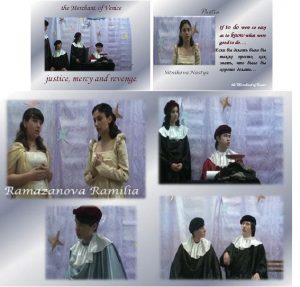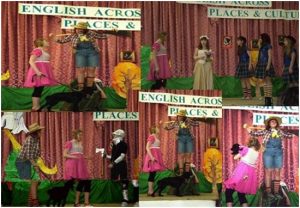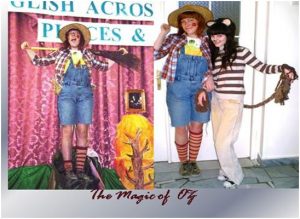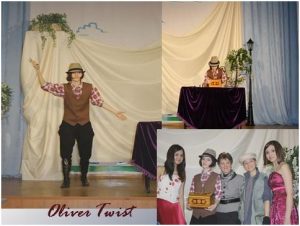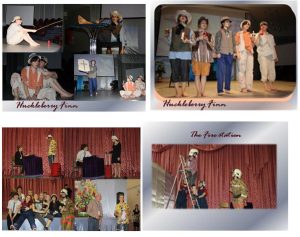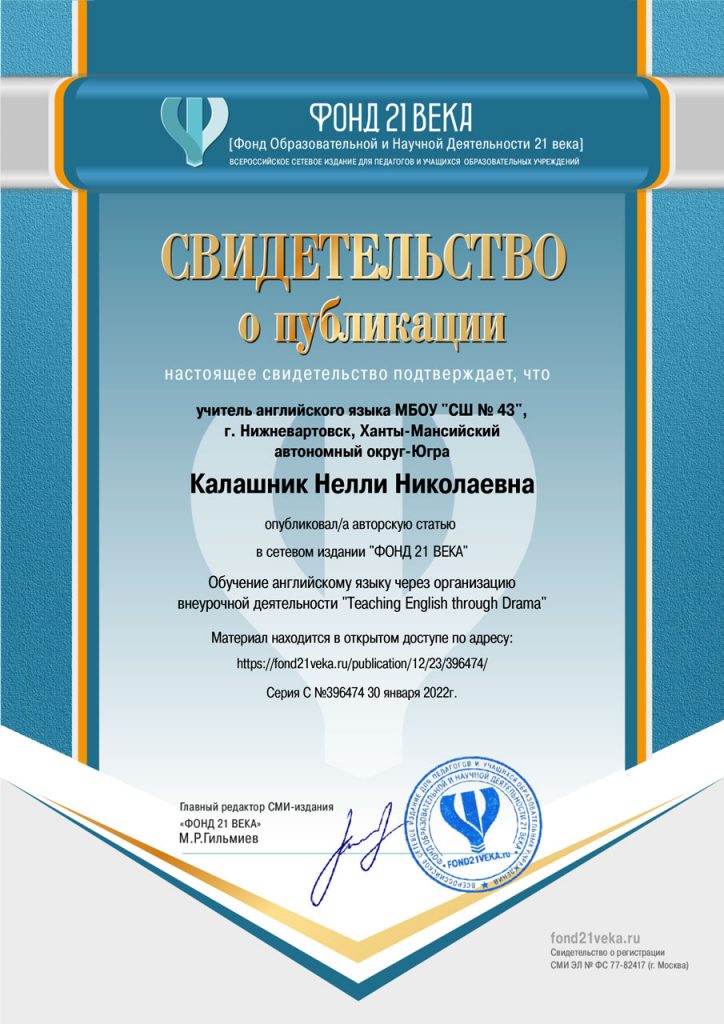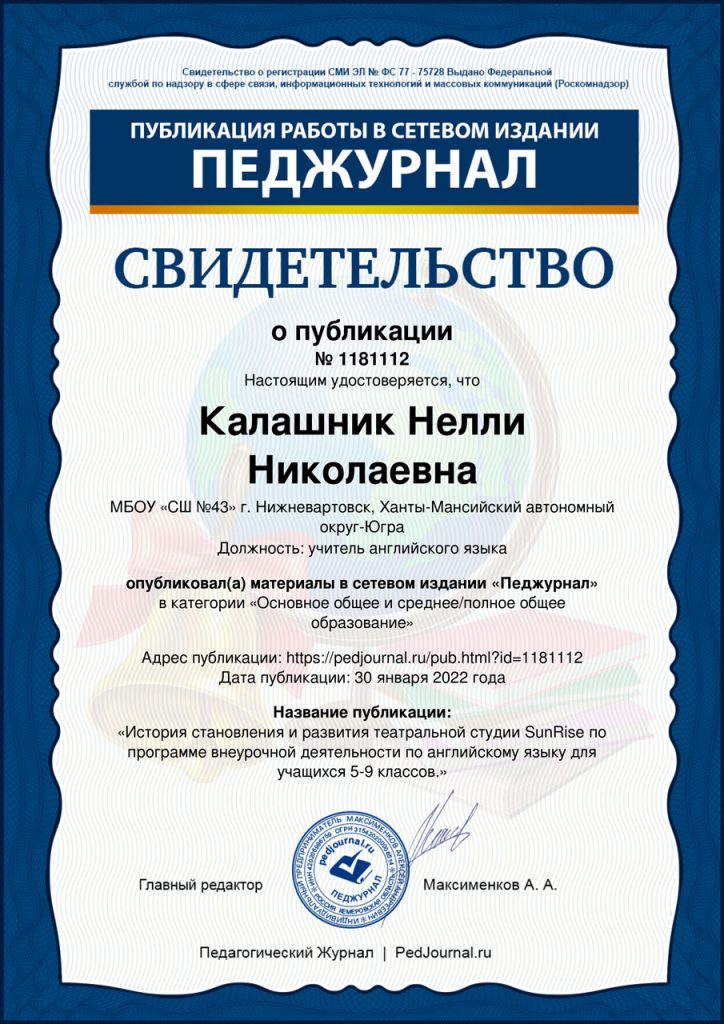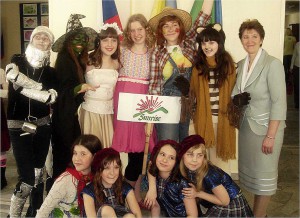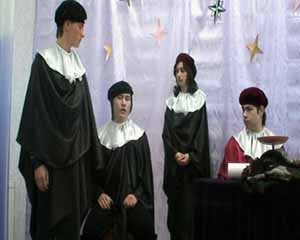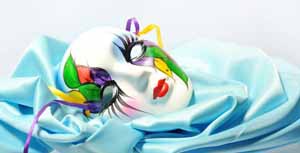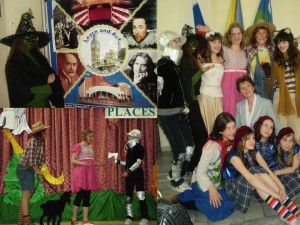«Children’s creativity is a condition of their personality development.”
Sh. Amonashvili
Communicative competence in the modern sense of the word provides a capacity for intercultural interaction. In our time, this is the most essential goal for all categories of students.
The essence of communicative teaching is that learning is a model of the communication process. That is the drama game that offers the opportunity to meet the requirement to communicate in a foreign language and helps make phrases, built on a simple model, communicatively relevant, helps teachers make the process of repeating the same speech patterns and standard dialogues emotionally appealing. Teaching English through drama is a field that has been increasingly evolving over the last sixty years.

My way of acquiring and implementing drama in my teaching career went through intuitive desire to make teaching effective and fun. First, I tried to use every source of the student’s book, as a tool so that the learning process should change into exciting and joyful activities, they were: making textbook dialogues into role-playing, listening into imitation practice of the English accent, texts were turned into scripts for dramatizing, as well as playing developing games and the goal was just to make the language sound real and lessons more interesting, enjoyable and fruitful.
The outcome was amazing, my students loved English. Moreover, it led us to organizing an English Club, which gave birth in its turn to the “English theater Studio”, that we called “Sunrise”. This kind of activity has unlimited possibilities. It does not only make children interested in creative drama activities that result in higher cognitive interest in the language study, but it also helps to enrich active vocabulary, implement it in speech, improves grammar skills in self expressing and broadens mind.
The relevance of the theater studio defines the basic active learning principles as follows: 10% is learned when students read, 20% is learned of what they hear, 30% – of what they see, 60% – of what they hear and see, 70 % -of what they read, see and hear, 90% is learned of what they say when they act.
It is also a form of developing cultural competence. “English is taught through culture and culture is taught through the language”. Before distributing roles, and playing parts, we get acquainted with the biography of the writer, study the contents of the novel, watch the screened version in the original, make up a scenario, and that allows us to talk about life, its values, moral norms and such concepts as good and evil, happiness, wrong doings. Along with instructing and encouraging I inspire students to slip into the shoes of another character in order to empathize and understand from within. I’ve realized that they also need to make the ethical choice: “If I were that character, what would I do?” So, the actions and the meanings of the actions are being explored as well. I believe that drama is the finest way to transfer cultural knowledge as all the knowledge is being learned by doing.
“Tell me and I will forget. Show me and I will remember. Involve me and I will understand.”
Chinese Proverb
Dramatizing the novels, preparing props, socializing with children of different ages, emotional worries for the heroes of the novels and friends’ support while you are on the stage, all these contribute to the discovery and development of natural creative abilities of children, teaching them how to communicate and cooperate.
Working at “Pygmalion” by B. Shaw, “ The Mayor of Casterbridge, or How the man sold his wife” by T. Hardy, “As you like it” (act II, scene7) by W. Shakespeare,” Red Riding Hood ” by R. Dahl,(1) I was fascinated at the children’s wonderful faculty for teaching other children and at the same time learning from them too. They experience this mutual learning in the context of ‘preparing a play’, and I am gradually have become regarded as a’ fellow-worker’ and a ‘friend’.
Then there followed more serious fulltime plays of “The Merchant of Venice” by W. Shakespeare, “Lord of the Flies” by W. Golding and “The Magic of OZ” by F. Baum. While working at the production of the performances we truly experienced pure happiness. So, it makes me think that the factor of happiness and well-being isn’t any less important than intellectual and language achievements. I personally believe, that is we here for. And we do the work mainly through our intuition that emphasizes its excitement. This mysterious force of intuition when all of a sudden the child finds the right version of how to act, releasing his spontaneous genius within himself, makes the process unforgettable. While preparing for the report I came across such words “when a person functions beyond a constricted intellectual plane, he is truly open for learning. This is the moment when we are freed to relate and act, involving ourselves in the moving and changing world around us.”
The latest works include “Oliver Twist” by C. Dickens and “The adventures by Huckleberry Finn” by M. Twain, which were made in the form of “dramatic reading of the prose”, but still we did it with the acting approach. We became “Learn and Act” festival winners in the nomination of the same name, rewarded “For the originality of the production of the prose”. It was our new experience inspired by the Surgut International conference “”LANGUAGE TODAY – 2010: Trends and prospects in Russian education”, where Professor Susan Barduhn read her part of prose, and the audience restrained their breath, listening to a wonderful, carrying away dramatic reading of the part “In the rain”.
Our performances were highly praised at the Regional annual festival “Learn and Act” organized by the Centre for International Cooperation “Lingua”, directed by Irina Zakharova, Nizhnevartovsk.
The studio work is now arranged in the form of a theatre workshop. Anyone wishing to try themselves in the role of actors, regardless of the class and level of the language skills is invited to our studio that gives them social and spiritual experience, makes it possible for an individual to create selflessness, to learn self-teaching and self-developing, to promote and acquire practical language skills, and it allows discovery and to be keen on learning new things through the English language. Our audience is primarily students of our school, students’ parents and the festival audience.
The problems faced:
- Each year there are new participants in the studio and each year I have to work at creating a true personal freedom and equality between students and me again and again.
- I have to be sure that none of the students is dominating over the others, otherwise children have little growth or pleasure in the activity, as a result a true group relationship does not occur, and students leave the studio.
- The produced performance’s life is no longer than a year (my “actors” either leave school or grow up to play a second time, which is much more difficult than play it premiere). It gave me understanding that not only the outcome that matters but the process itself plays the most significant role in running the
- There is always an inside struggle against the tendency to help pupils to fulfill their teacher’s ambitions for I have to listen to what students wish to choose for staging.
To sum up, education through drama is effective due to the following factors:
- The focus of the learning process is on the learner (child-centered, in the language of Dewey).
- Students learn new aspects of themselves while taking risks, working out new ideas and trying out different ways of conducting
- Students learn self-knowledge in This can occur while experiencing real life activities.
- Students learn cultural knowledge through drama.
- Drama in education transfers cultural heritage from one generation to the next.
- Drama is a social and reciprocal art form, a powerful means for cooperation and It can change the way people feel, think and behave.
- When students work with each other in social situations, they obtain social skills with which they can cope in real life.
- Drama education is mainly a cooperative


